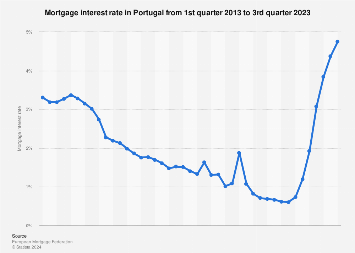
In 2022, Portugal overturned the sinking mortgage interest rate it had gone through during the coronavirus (COVID-19) pandemic. The country did not escape from the overall trend of falling mortgage interest rates observed in Europe during the COVID-19 crisis, which positioned national mortgage interest rates at 1.54 percent in the fourth quarter of 2021.
Interest rates as a weapon against inflation
Even though interest rates are affected by economic growth, monetary policies, the bond market, the stability of lenders, and the overall conditions of the housing market, inflation currently leads the European Central Bank (ECB)’s decisions regarding them. As inflation has been low in Europe since the 2008 financial crisis, the ECB lowered interest rates in an attempt to promote economic growth. However, the economic difficulties brought up by the coronavirus pandemic and the Russian-Ukrainian war have fueled inflation. To counteract this rise, the ECB increased interest rates. Portugal’s abrupt rise in interest rates on new residential loans from 0.83 percent in 2021 to 3.24 percent in 2022 demonstrates the balanced and calculated act between the two financial indices.
High interest rates and low mortgage lending
Compared to other European nations, Portugal has a low gross residential mortgage lending. In the third and fourth quarters of 2022, mortgage lending decreased in the country due to rising interest rates and worsening economic conditions. Despite being in a rising trajectory in terms of outstanding residential mortgage lending since the second quarter of 2021, 2023 registered decreasing figures caused by the same economic contingencies.






